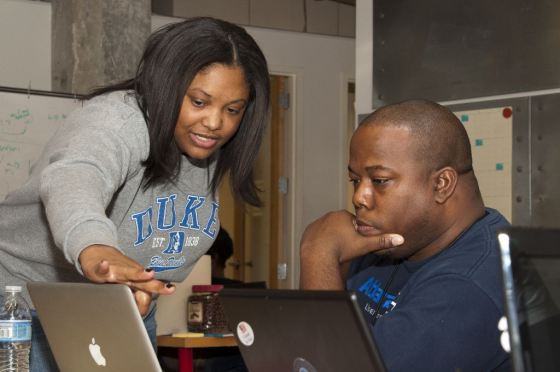|
Do you know the difference between the two? It’s an important difference. If you own a business that business continues to make money whether or not you are there. If you own a job, yes, you’re still in control but once you go off on holiday your revenue stops coming in. I learnt this way of thinking when I read Rich Dad, Poor Dad by Robert Kiyosaki in 2007. He says a lot of professionals like doctors and lawyers make this mistake when they start their own practice because they do all the work themselves. If you want to actually own a business you need to thinking of a structure that gives you revenue even when you’re on holiday, e.g. a legal partnership where partners get a share of profits in addition to bringing in clients. If you own a service business, you can franchise your business when it gets large enough. If you make a physical product you can eventually find a manufacturer for mass production - there are only so many "widgets" you can make yourself. My whole life set up in a way that my current hard work will continue to pay dividends for a long time to come – even while I sleep! Through Black Girl – Getting To Wealthy I help other people do the same:
4 Comments

Okay girls, I talk about this in Build a Booming Business but I thought I would write a brief blog about it too:
I've seen quite a few websites out there with footers clearly showing that the website is free. You may think that this doesn't matter, "at least you have a website", BUT it does matter, it matters a lot! If a potential customer comes to your website and it is blatantly free their initial thoughts are:
Especially if you are selling products you cannot have a site that is conspicuously free! It says too many negative things about the business. Your customers don't want to buy from a hobbyist, they want to buy from a passionate business owner that knows a lot about their business. They want to buy from someone that makes an effort and will respond to them quickly when they have an issue. Furthermore, with so much internet fraud going on nowadays people want to work with businesses that they can trust. Whether you like it or not, a free website doesn't not instill confidence in potential customers. A free service is not only limiting but it also kills potential business. I have been building my own websites since 2007. I used to build sites from scratch but now I make my life easier by using a drag and drop web builder called "weebly". You don't need any coding skill whatsoever and you can build beautiful websites with weebly in hours. I curently run over 1o websites using weebly's easy drag and drop tool.
Was it expensive?
No. I paid $78 for two years and the ability to build 10 websites. For most people 10 websites is enough but I paid a one-off fee of just $50 to increase my access to 15 sites. If you're running a free website or plan on starting a business, do yourself a favour and use weebly! It's one of teh best business decisions you could ever make! Examples of websites I've built with weebly include this one, girlbanker.com, fatcreep.com, exampleresume4u.com, UncleCanCook.com and katsonga.com.
I'm a sucker for motivational talk, self-help books, good quotes etc and it doesn't get more touching and motivating than this:
HOMEMADE is a Semifinalist in the $200,000 FOCUS FORWARD Filmmaker Competition and is in the running to become the $100,000 Grand Prize Winner. It could also be named an Audience Favorite if it's among the ten that receives the most votes. If you love it, vote for it. Click on the VOTE button in the top right corner of the video player. Note that voting may not be available on all mobile platforms, and browser cookies must be enabled to vote. Electricity in Malawi is a luxury many cannot afford. Installing a transformer to cater one area can cost up to MK 5,000,000.00 (USD18,000). This is the story of two young men from the village of Nkhatabay, Malawi who through self taught engineering have generated electricity powering more than 50 villages through invention of homeade generators locally designed and made from scrap metals. Director/Producer: Villant Jana Camera: Bwanali Makote Sound: Yamikani Lozi Editor: Villant Jana Music: Firstcom Inventors: Hastings Mkandawire, Jimmy Mzilahowa Location: Nkhatabay, Malawi
 I went to a Women in Business seminar targeted at helping people progress in their businesses and careers. There were many useful insights that I would like to share as you may also find them useful. Here are my notes from the event:
 SMARTER NETWORKING - 60 Second Pitch People in power have shared that when someone approaches them to pitch i.e. sell themselves, an idea or a product, they are more receptive if you:
The speaker shared a story about a lady at a networking event that she invited to chat. She looked over her shoulder the whole time and walked off mid sentence! This lady didn't bother to get to know who she was being invited into a conversation with and she could have failed to capitalise on a conversation with the most valuable contact for her business on that day. Objective of networking: to help as many people as possible. So, your intro at a networking event should help people understand: - How you could help: them, their organisation or someone they know BRAND: what people say about you when you're not in the room.  BEST INTRO WHEN NETWORKING What brought you here today? Rather than - what do you do? Why? Many people hate being asked what they do because for instance, they do lots of things, or they're unemployed or the question is so broad that it's hard to give a decent answer. How do you join a group that has already formed? Ask: may I join you? How do you approach a group of men without them thinking you are hitting on them in any way? I approach them in the same way that I would a group of women. There are three stages in your relationship building: TYPES OF IMPACT
If you think a man has misinterpreted you "immediate" impact, work on that with the "interaction" and "follow-up" impact.  ON PROGRESSING IN LIFE AND CAREER A great quotes was shared: "Everything you want is out there waiting for you to ask. Everything you want also wants you. But you have to take ACTION to get it." Jack Canfield Nikki Hutchison said you should only include recent achievements as old achievements are irrelevant. I don't agree. Some achievements will always help people to build a picture of who you are, e.g. I got a scholarship to the University of Cambridge straight out of one of the ten poorest countries in the world, Malawi; I subsequently became the first person to graduate with a first class in Economics in the 3rd largest college in Cambridge - they'd been allowing women into the college since the 80s. Even when I am 80, that will be viewed as an achievement to me and to others. Interesting fact: 22% of employers are less likely to hire without a thank you follow up [there were other points but I couldn't note them down fast enough!] OTHER TIPS FROM WOMEN THAT HAVE GROWN
b) Want a pay rise c) Want a promotion Many women hate boasting so find a non-boastful format for self-promotion. If you don't say what YOU want, you let people decide what is good enough for you!
 FINDING A CAREER OR BUSINESS SPONSOR Women with sponsors were found to be 52% more likely to be happy with their career progression. Than those without one.
I realised that I don't really have sponsors! Shame :( - I sort of have one - I need people that know about how to grow a business that have actually done business themselves. The closest thing I have to a sponsor is the books I read. Sponsors introduce you to their inner circle, champion you and give you critical feedback. How do you get a sponsor? You earn them! 1. Through commitment, i.e. attitude, loyalty, good, work ethic, sharing info, being consistent, not getting complacent) 2. Through the favour system If you do something for someone, they feel obliged to do something back! E.g. have you ever gotten an unexpected Christmas card and dashed out to send one back? So be PROACTIVE about adding value to people's lives. 3. Through becoming the go-to specialist in your niche Add value and sponsors will begin to materialise. They will strategically want to involve you in important meetings Points 1 to 3 are the "Sponsorship Rulebook" Why would someone want to sponsor you? You make them look good! Reputation! What will I do about getting a sponsor? Step 1: This week I'm going to the British Library (I've been thinking about it for a while) because they have great resources for small businesses including people I can talk to. What are you going to do? Step 2: gosh, I've gotta keep something to myself! I'll keep you posted. Visualisation: it's important to regularly visualise where you want to get and who you want to be; it helps to reinforce your goals and to ultimately get there. In summary, as long as this blog is. I have missed tonnes of stuff the above is mostly from the first half of the day so I would recommend you sign up to the Women in Business Superseries so you can go to the next one or benefit from their free webinars. My favourite speakers The hosts: Christine Brown-Quinn and Jacqueline Frost Stephanie Peckham, Smarter Networking Nikki Hutchison, Chilli Pepper Global Event Sponsors Upper Street The Fold, London Matt Roberts Personal Training The Lemon Gallery Kiehl's
 We cannot compete on an international platform because: 1. Our pricing is out of kilter 2. We're too bureaucratic PRICING Every time I want to hire a consultant for anything, British prices are always higher than American, Canadian and of course, Asian. On top of that, there's this 20% VAT thing which completely makes a good price look stupid e.g. my email marketing company quoted me £600 and then I get a bill for £720 - wtf? Oh, it's VAT, sorry, we forgot to tell you about that. Like seriously, you didn't think that would be a significant thing to mention in all our discussions? Luckily, I hadn't signed the contract yet - but I did! BUREAUCRACY Businesses need to be willing to negotiate and they need to make decisions fast to compete on an international platform. For instance, when I was selecting a developer for my app, Fat Creep, the British contender would say stuff like "I have a meeting with my partner on that this afternoon". I don't give a monkeys about your meetings, I need a decision now! The Asians would take things away and respond extremely fast. At what level can Britain compete? Primary industry i.e. agriculture etc, we don't have the land and the weather is not amenable to the growth of very much. We cannot compete well here. Secondary industry i.e. manufacturing, America is a developed economy just like Britain but input prices are way lower - how do you explain that? People are able to start making a product so much more easily than you can here. Are the British just too darn greedy? Why can't they cut their pricing to match America? Tertiary industry i.e. services - this is where we should be able to compete! However, I took a brief look at the many resources I now use as an entrepreneur related to technology and they are mostly American!! My email management tool (mailchimp), my webhost (weebly) and all the artists I have hired to do pictures for me. My accountant had to be British but even what he said was a cheap price for his services made me feel a little screwed. I haggled, of course, because my name wouldn't be Heather if I didn't! A successful business, even one with only a single full-time employee depends on so many other suppliers. Every business receipt represents a supplier, I want to use British but I'm sorry, right now they need to jack up - big time!
 Symbol for an RSS feed Symbol for an RSS feed I discovered RSS feeds quite by accident. I thought an RSS feed was a news strip that flashed recent news updates at the bottom or the top of your computer screen, much like what we now see on TV news channels. Then I got Mac. I was playing around with it when I figured out how the whole RSS thing works: 1. When you see the RSS sign on any website, if you click on it you're given a feed url. 2. You insert this url into a feedreader and every time that blog or news site produces a fresh article you get an update via your feedreader! On Macs the mail app has an in-built feed reader that you can paste urls into. This is fabulous because: a) You don't have to give your email away but you get the news straight to your inbox. b) When you don't want to be subscribed to that feed anymore you can just delete it in one click. c) It's easy, fast and just as cheap as email plus you don't need to fill in forms etc. d) If you have a business listed on LinkedIn, there's a spot there for a feed url so your blogs can be posted straight to your Company's LinkedIn profile with no extra work on your part. I use weebly to build my websites and with them adding/creating RSS feeds is easy peasy. e) If you have a business you'll capture people that prefer RSS to email. So - if you haven't got a feedreader try one of these: I was rather disappointed to discover that the top two newspapers in Malawi don't have an RSS url. This is shocking because you'll hardly every find a news site without this form of news syndication. As a result I was only able to add a feed for Nyasa Times to Chichewa101.com/malawi.
Are you really above the average? Whether or not you are, you are happier! Optimism leads to success and overall more happiness.
 Entrepreneur lesson numbers 1, 2 and 3. I thought that when I became self-employed I would have loads of time to do everything and that my life would just open up. I also thought that as a small business owner it is my duty to be prudent and not to spend ANY money on staff. I have heard other business owners talk about the importance of not trying to do everything yourself and thought, "If you're a small business, you need to do everything yourself." This is very wrong, very very wrong! Two months into my business, I have found that social networking is important to drive traffic to my websites but it takes tonnes and tonnes of time!! Geez, I have spent so much time posting links of blogs I have just written to various sites instead of spending that time either making phone calls, writing more great copy or coming up with new strategies. My time is not being well spent! Secondly, nowadays you don't need to spend a fortune to have an assistant. You can actually pay a very decent fair wage to a virtual assistant to whom you assign all tasks that can be passed on. This is great! Why have I not been using this technology all along?! I'll tell you why: because I hadn't read the Four Hour Work Week by Tim Ferris yet so I didn't know that I could be making use of such a service. My assistant starts on Monday! First things first, what is a virtual assistant? An assistant that works remotely. She isn't in the same office as you. You could be in New York whilst she works from London. In my case, she's a pretty lady called Uneza in India. She is a university graduate. So, how does one go about assigning tasks to such a person? 1. Decide what you are not good at doing: I am not good at admin and other such repetitive tasks e.g. putting my receipts into a spreadsheet. I save all of them in a directory as PDFs easily enough but find it hard to make the extra effort to put them all neatly into Excel. 2. Decide what is not cost efficient for you to do: Once I have decided on a social marketing strategy e.g. post links to "such-and-such" a new hot social network to be, I do not need to be doing this myself. It can be passed on. I can respond to follow-on comments if they require specialist knowledge but other than that anyone can do that work. Social networks are a time vortex: you will always find something to distract you and if you want to have oversight, allocate an hour at the end of the day. Don't get lost in them. 3. Decide things you don't want to do: See one and two - I don't want to be doing any of that. In addition, I frequently need to dig up emails or information on something - one does not have to do one's own websurfing. 4. Decide on repetitive tasks that can easily be passed on: Most things are repetitive e.g. data exercises, formatting tasks or copy-and-paste jobs. These things are ripe for passing on to an assistant and anyone that looks closely at their to-do list will see there are many repeat tasks that can be done by anyone that has a computer. I cannot wait for my VA to start. Feedback will follow. Lessons: 1. Tempus fugit - time flies and it flies even faster if you are a business owner. 2. Value your time. You might make more money if you spend some effectively increasing the quantity of yourself available with an assistant. 3. Your assistant could be sat in another country entirely, they do not have to be present. In fact, more might be achieved if they are not present.
My cousin posted this video on her blog. I was so touched (almost cried but I'm made of stern stuff!) that I had to put it up too! It's about not giving up. At the bottom I add one of my favourite poems, When things go wrong as they sometimes will; I used to have the poem hanging up in my room as a teen. When things go wrong as they sometimes will, When the road you are trudging seems all uphill; When the funds are low, and the debts are high, And you want to smile, but you have to sigh; When care is pressing you down a bit - Rest if you must, but don't you quit. Life is queer with its twists and turns, As every one of us sometimes learns; And many a fellow turns about When he might have won, had he struck it out; Don't give up though the pace seems slow; You may well succeed with another blow. Often the goal is nearer than It seems to a faint and faltering man; Often the struggler has given up When he might have captured the Victor's cup! And he learned too late, when the night came down, How close he was to the golden crown. Success is failure turned inside out, The silver tint of the clouds of doubt. And you never can tell how close you are If may be near, when it seems afar. So stick to the fight when you are hardest hit, It is when things seem worst that you must not quit. Author : Unknown
|
Archives
December 2015
Categories
All
By Heather Katsonga-WoodwardI'm always thinking, debating, considering and revising my views - some of those deliberations will be shared right here. |














 RSS Feed
RSS Feed
